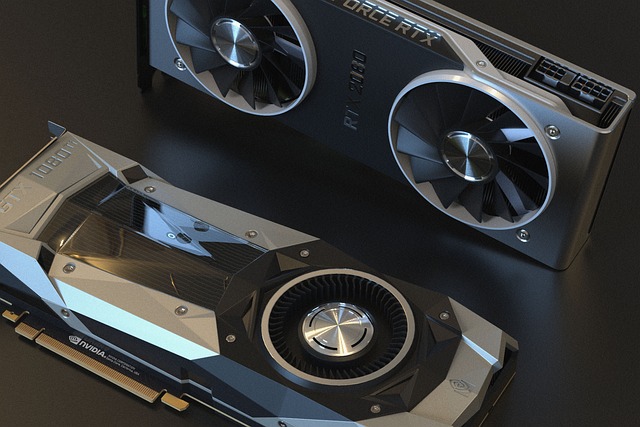Choosing the right graphics card is one of the most important decisions a gamer can make. A graphics card is responsible for rendering images and videos on a computer and it is a critical component for a smooth gaming experience. we’ll provide an overview of the factors to consider when selecting the best graphics card for gaming.
graphics card compatibility:
The first factor to consider is compatibility with your system. Graphics cards come in different shapes and sizes and you need to ensure that the card you choose is compatible with your motherboard power supply and other components. You can check the manufacturer’s website for compatibility information or you can consult a professional technician.
graphics card Price:
Graphics cards can be expensive so the price is an essential consideration. You need to balance your budget with the level of performance you want. The most powerful graphics cards can cost thousands of dollars while mid-range cards can cost a few hundred dollars. Be sure to set a budget before you start shopping and stick to it.
Resolution:
The resolution of your monitor is another important consideration. Higher resolutions require more graphics processing power and you need to choose a graphics card that can handle the resolution you want. For example if you have a 1080p monitor you can choose a mid-range graphics card while a 4K monitor requires a high-end graphics card.
Frame rate:
Frame rate refers to the number of frames per second (FPS) that a graphics card can render. A higher frame rate results in a smoother gaming experience. The frame rate you need depends on the type of games you play. First-person shooters require a higher frame rate than strategy games for example.
Memory:
Graphics card memory or VRAM is the amount of memory the graphics card has for rendering images and videos. The more memory a graphics card has the better it can handle high-resolution images and videos. A minimum of 4GB of VRAM is recommended for most modern games.
Power consumption:
Graphics cards can consume a lot of power so you need to ensure that your power supply can handle the graphics card you choose. High-end graphics cards can require 500 watts or more of power while mid-range cards can require around 300 watts. Be sure to check the power consumption requirements before you make a purchase.
Graphics Card Brand:
The brand of graphics card you choose is also important. Some brands have better customer support and warranties than others. Popular brands include Nvidia and AMD but there are also other brands that offer good-quality graphics cards.
Cooling:
Graphics cards can get hot during intensive gaming sessions and overheating can cause performance issues or even damage the graphics card. You need to ensure that the graphics card you choose has proper cooling such as a heatsink or a fan.
Overclocking:
Overclocking is the process of increasing the clock speed of the graphics card to improve performance. If you plan to overclock your graphics card you need to choose a card that has good overclocking capabilities and proper cooling.
read more:
–Best free online games for kids under 10
–Best gaming laptops under $1000
–How to build a budget gaming PC
choosing the best graphics card for gaming is a critical decision that requires careful consideration. You need to consider factors such as compatibility price resolution frame rate memory power consumption brand cooling and overclocking capabilities. By taking the time to research and compare different graphics cards you can find one that meets your needs and provides an optimal gaming experience.

Discover a world of inspiration and creativity with facex. From art and design to technology and lifestyle, our platform features diverse content to empower and uplift. Join our community and explore a new perspective today
